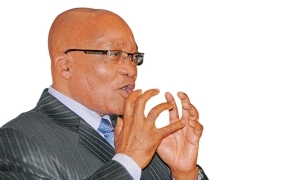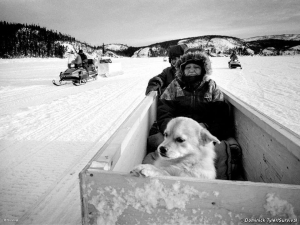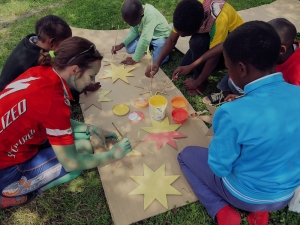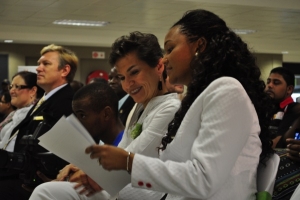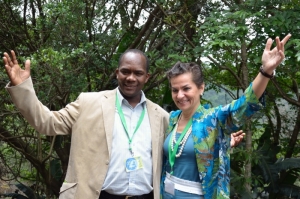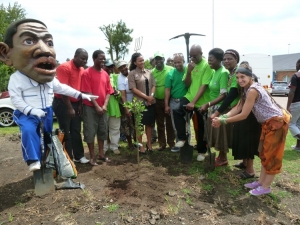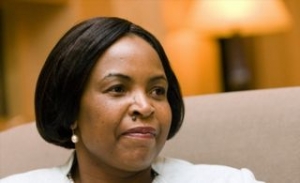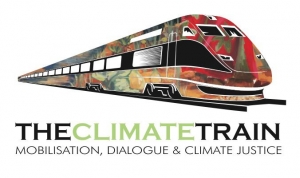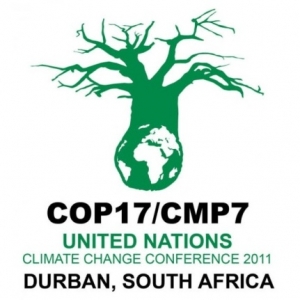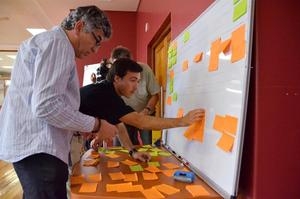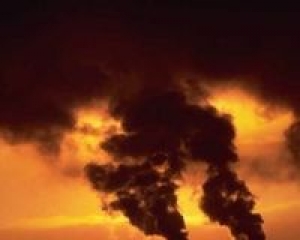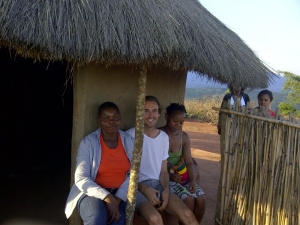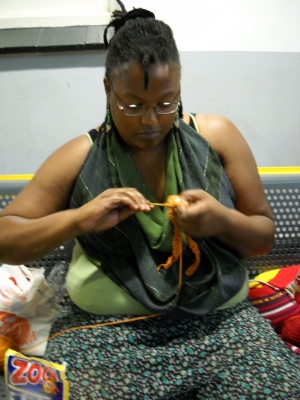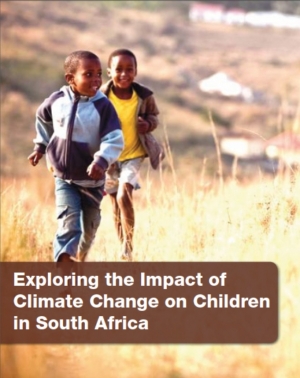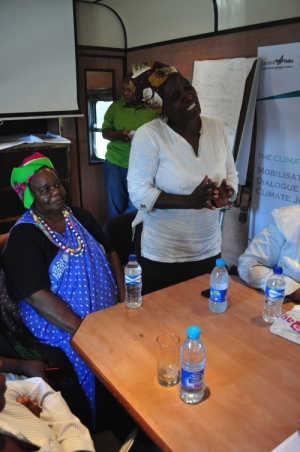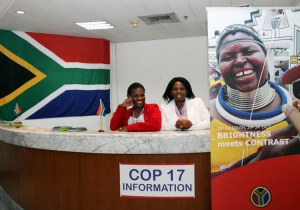The President of the Republic of South Africa, Jacob Zuma has officially opened the much anticipated COP 17/CMP7 conference held at the Albert Luthuli International Convention Centre. In his speech, he stresses the need for all involved parties to strive to find a solution, here in Durban.
As the UN’s climate change conference begins in Durban, Survival calls for the ecological knowledge and insights of tribal peoples to be heeded in global decisions concerning climate change.
During the Midlands Moving Planet – Day of Global Action to Move Beyond Fossil Fuels, uMngeni residents signed a petition asking the local Municipality to make the move to a sustainable future. As part of the celebration of current sunlight and renewable energy, local children painted bright sun shapes on which the demands were written.
The COP17 Climate Train was today welcomed in Durban with a fanfare and a range of dignitaries Including National Framework Convention on Climate Change (UNFCCC) executive secretary Christiana Figueres and chief of the COP17 negotiations and EThekwini Speaker Rogie Naidoo.
Ahead of the opening of the COP17/CMP7 Conference on climate change in Durban on Monday 28 November, Executive Secretary of the United Nations Framework Convention on Climate Change, Christiana Figueres, performed her first ‘official’ function at the launch of the Durban CEBA (Community Ecosystem-Based Adaptation) Initiative at Durban’s Paradise Valley at the weekend.
After a beguiling journey through some of South Africa’s remote communities, the Climate Train has reached its final destination in time for the biggest conference SA has ever hosted.
African women and children constitute the majority of the continent’s poor and play a vital role in food production in Africa. Therefore they will be the hardest hit by famine due to climate change, if they are not effectively prepared and food security issues are notaddressed properly. The continent will suffer as a result.
It is up to civil society to prevent a potential “genocide” or “ecocide” being agreed to at the Durban Conference of the Parties (COP17) which starts in Durban this week.
On the 17th of November, Grahamstown, a small town in the Eastern Cape of South Africa, held a roundtable on COP 17, bringing together stakeholders from across the community.
South Africa's proposed carbon tax is set to act as just another tax on South Africans while inadequately addressing issues of climate change - the very problem it was designed to address. This is because the revenue generated will not be earmarked to tackle issues of climate change, rather it will simply flow into government coffers.
Climate change is fast becoming one of the biggest threats that mankind faces, yet if you walk through the village of Vatsonhga it’s hard to believe any of the scientific predictions.
Zambia, Uganda, United States of America, Canada, Cameroon, Kenya and South Africa. These countries were all represented in one room to make their voices heard in the fight against climate change.
Sheltered from the fierce heat of the Namboomspruit sun, 16 Mokopane community members gathered for an Earth Forum in the cool shadows of an oasis of tall palm trees.
On its travels through South Africa the Climate Train has been creating unique spaces for community members - notables and ordinary people alike- to engage in meaningful discussions around climate change and the lively Pretoria was certainly no exception.
Earlier this week a report entitled Exploring the Impact of Climate Change on Children in South Africa was launched by the Minister of Women, Children and People with Disabilities, Lulu Xingwana, at the CSIR International Convention Centre in Pretoria.
Transport authorities are confident that there will be no unnecessary traffic delays or problems during the upcoming UN Climate Change Conference (COP 17) in Durban from 28 November to 12 December 2011.
Last week CopArt held a parallel event in Cape Town to the COP17 happening in Cancun, Mexico. During a series of events, called Climate Fluency Exchanges, complex climate change information was turned into accessible and practical ways of knowing. “CopArt is about embodying climate change. It is about making it personal and relevant,” Elizabeth Fletcher, one of the organizers said.
Global greenhouse gas emissions are rising to dangerous levels, and if a global deal to reduce emissions to 1.5 degrees Celsius is not reached soon, Africa will face droughts, submerged cities and coastlines, famines, species extinctions, and many climate refugees.

